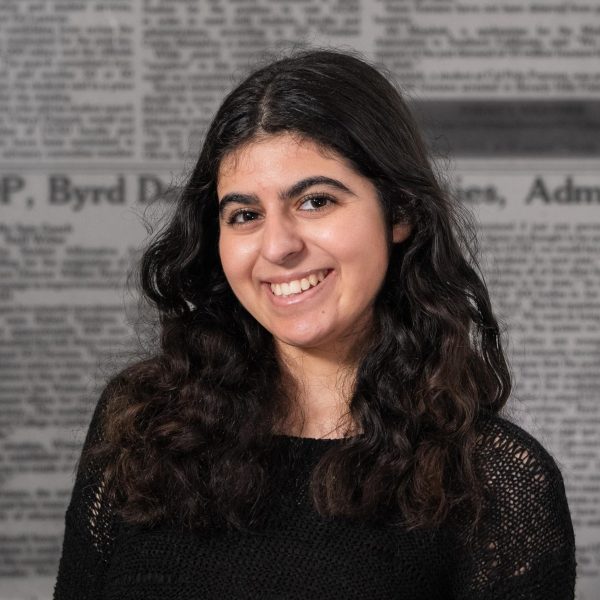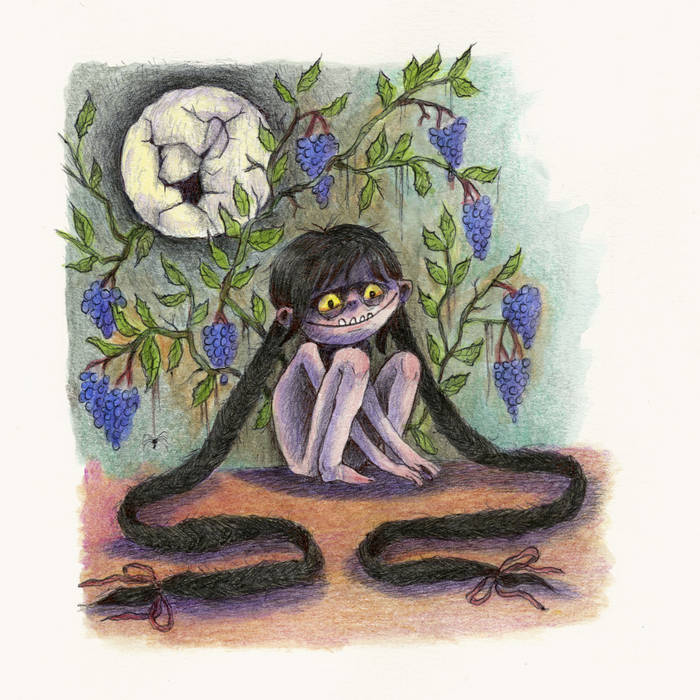As I walked into the acting studio in the basement of Galbraith Hall, I was immediately struck by the natural camaraderie of the students of Company 157. This campus theater collective, which describes itself as “students helping students make theater,” performs a licensed show every spring. This year, the collective is preparing for its production of Agatha Christie’s iconic whodunit, “The Mousetrap,” which will be showing on June 7 and 8 in the Student Services Center’s Multipurpose Room.
As the longest-running play in the world, with over 30,000 performances and counting on London’s West End alone, “The Mousetrap” has cemented itself as a seminal part of theater history. The play’s themes of individualism and self-expression have connected with audiences for over 70 years.
“The play at its core is about the choice to face your past and how each character contends with that,” said third-year Georgia Horton, who plays the aloof Miss Casewell. “That will always be relevant, and there is a reason why the play is so popular and so long-running. It resonates and makes audiences question what they are running away from.”
Company 157’s production of “The Mousetrap” is directed by fourth-year Justin Valine, the organization’s artistic director for the 2024-25 academic year. Valine spearheaded choosing this play for the company’s spring show, excited by its entertaining plot and the opportunity to create an ensemble-focused production.
“I wanted to bring Company 157 something where a lot of actors can try characters that aren’t really in their comfort zone or might be more outside of the box, and really tackle that,” Valine said.
“The Mousetrap” follows eight characters snowed into a lavish British manor, each with a mysterious backstory that is revealed over the course of the play. As the night goes on, they come to realize that the house may have connections to a recent murder. This play uses the whodunit structure to great effect as the characters find themselves as suspects in the case.
Per the English setting of the play, every single member of the cast don an accent for their role — six British, one Irish, and one mix of Spanish and Eastern European. The last accent is the product of second-year Cass Rivas, who plays the peculiar Mr. Paravicini. She took the character’s script description as “tall, dark and foreign” as an invitation to craft her own blend of accents.
I had the pleasure of sitting in the audience during a runthrough of the first act of the show and witnessed the comedic performances firsthand. From Rivas’ hilarious accent to second-year Finn Hanson’s expressive physicality as former military officer Major Metcalf, each actor in the show truly made their character their own.
“I have a fun time creating characters and getting into characters,” Hanson told me during a break between scenes. “I feel like that’s a very human thing: We all do it, whether we see it or not. We all play pretend as kids, and I think acting’s really similar to that, where it’s finding a person, finding what they care about. It’s really just stepping into someone else, this whole other person.”
As the night went on, I watched as the cast stopped and started numerous times, rehearsing the show to perfection. Each pause in the action was a chance to make a new acting choice to enhance the overall performance: Horton switching tones from tired to absolutely exasperated, or first-year Sage Evans and fourth-year Gabe Deulloa shifting their blocking to paint the picture of a true married couple. With every choice, I could sense the cast and creative team’s desires to transport the audience from a college campus in 2025 to a southeast England manor in the 1950s.
“I direct performance more than I direct spectacle,” Valine explained. “Lots of times, I’m focused on ‘What’s the intention behind this?’ or ‘What are the dynamics here?’ and seeing that grow and flourish.”
Despite the fact that they were technically working, the sense of friendship among the cast never wavered. With each new acting choice, a burst of giggles exploded from the cast — giggles that I found myself partaking in even though I was in a new environment. Even as an audience member, I felt fully immersed in the world of Company 157; the cast’s chemistry was readily apparent.
“Bonding with the cast makes it so much easier to be here and show up, to commit to 16 hours a week of rehearsals because it doesn’t feel like a show; it feels like being with friends,” Hanson said.
With a tight-knit cast, Company 157’s creative adaptation of “The Mousetrap” is a production with something for everyone. Reminiscent of other classic mystery comedies like “Clue,” “The Mousetrap” takes familiar comedic archetypes to a whole new level while leaving audiences on the edge of their seats to solve the case. Act 1 had me simultaneously laughing at each new punchline and wondering what the final twist could be — I’m sure to return next week to see how the story ends.
“What I love most about the show, why everyone should see it, is that everything’s intentional,” Hanson said. “Everything is so detailed — every look, every movement, every gesture, is intentional. We’ve done a really great job of putting together a mystery. If you can solve it before the end, I’ll be very impressed because I think it’s a really well-written mystery.”











